Rejecting literary elitism
Read on The Post here: New Wellington journal rejects ‘literary elitism’ | The Post
George Titheridge wrote their winning short story in the bath, on their phone. As you do.
It’s called flash fiction, where brevity still makes way for character and plot.
The yarn, a provocative tale about a risqué relationship, won a prize for the best short story in the inaugural Folly Journal - a curation of experimental and lighter literary works, made up of fiction, poetry, creative non-fiction and commentary.
Titheridge, a Kiwi based in Berlin, is a copywriter but creative writing is what brings them most joy.
George Titheridge’s work, written on their phone in the bath, won best short story. It features in Folly Journal.supplied / The Post
It’s just a matter of finding the time and space to put pen to paper, or thumb to cell.
“It’s always just when I have the [opportunity] to write - it has to come out quickly and I think your phone lets you get things down. It’s in such a small window and it makes you be quite precise.”
And the bath, well, winter is long in Berlin. Baths are the only way to get properly warm, Titheridge said.
The story, I’m Obsessed With You, which was also short-listed for the Madrid-based Desperate Literature Prize for Short Fiction, explores the subtle power imbalances in a relationship between an older man and a younger woman.
ADVERTISEMENT
George Titheridge’s short story I’m Obsessed With You appears in the new Folly Journal launched November 3.JUAN ZARAMA PERINI / JUAN ZARAMA PERINI
“In the story the male character is warning what is going to happen, that she will be but a short term fancy for him before moving onto the next young thing.
“That makes him feel like he is absolved. It’s a male trick, a learned trick [and] that’s interesting to me. I like this idea of people’s true intentions hiding in plain sight.”
I Am Obsessed With You is part of a collection of writing and art that might not be found in the more highbrow literary journals in New Zealand, said Folly Journal’s co-founder and editor Emily Broadmore.
She and Folly co-founders Dana Tuner and Tiana Jones wanted to address the perception of “literary elitism” in Aotearoa.
The name encompasses the whole idea behind it.
“There was a lack of print journals that weren’t taking themselves too seriously [with] content that was lighter and magazine-y, fun, chill kind of reading. So we, a bit naively, thought ‘why don’t we do one?’”
They wanted it to be silly, sexy and provocative. It had to be beautiful and it had to be just for print, Broadmore said.
“That was important. Too much writing goes on the internet and gets lost in the ether.”
They put out the call for submissions and received more than 1400, from Aotearoa and abroad.
ADVERTISEMENT
The short form stories are readable over a cup of tea, or a glass of wine, said Broadmore.
“They are bridging the literary commercial genre. They are well written but not trying to be super literary.”
The written material was from a niche group of people who were writing in a genre that was sometimes provocative, often funny, racy, light hearted, she said.
Hiria Anderson-Mita's painting KAHUARAU (2021) can be found on the pages of Folly Journal.(Image courtesy of the artist and Pages Gallery)Hiria Anderson-Mita / Stuff
Some are Wellington-centric, though could be stories from any urban setting.
It is very ‘Wellington’ that the same person appeared in two separate stories.
Tim Middleton recognised himself in both pieces, though he is a little hazy on one.
In both short stories he is name checked in relation to his association with Motel bar, which he was a partner in when it opened in 1999.
He was a little trepidatious about featuring in the journal “but they are very Wellington stories. It wouldn’t take people long to work out who this ‘Tim’ was,” he said.
In the story, The Embassy, the author shares a clandestine space in a studio above the Embassy with Middleton, who was working at Motel while trying to make it as an artist.
They were hedonistic times, Middleton recalls.
He certainly remembers the roaring hospo scene in Wellington at the time, with Lord of the Rings mania in full swing and bars packed to the gunwales.
No wonder they are the basis for prose.
Folly’s writers come from a mix of backgrounds - policy, medical, legal, teaching.
Folly Journal founders Dana Turner, Tiana Jones and Emily Broadmore.supplied / The Post
Unusually, some of the authors in Folly write under pseudonyms. One Wellington author who uses the pen name Snakes said she feared not being taken seriously in her work if she used her real name.
“I had a lot of criticism from the literary scene when I said we were accepting pseudonyms,” said Broadmore. “But I thought, what choice have we got if we are wanting people to provide honest accounts of Wellington in honest stories? You [have to] let people have the safety of a bit of privacy.”
It’s been a full-time gig for Broadmore on top of her day job running communications agency Heft with her business partner, and raising seven year-old twins.
She’s a closet writer herself and has written short stories for years.
She’s been published in journals overseas and had two stories short-listed last year for the Bridport Prize, an international creative writing competition in the UK.
Broadmore, who also runs the Wellington Writers Studio, wrote a lot while her twins were little.
“It was the one thing I could do where they wouldn’t yell at me. If I had a pen and paper in my hand they would leave me alone. If I picked up a book or my phone or tried to do anything productive they would start squawking at me. So I started writing. I had pages and pages of stories on pieces of paper, on the back of receipts.”
Jones and Broadmore at Folly’s Wellington digs.JUAN ZARAMA PERINI / JUAN ZARAMA PERINI
There was understandable interest, some trepidation and a little curiosity about her and her co-founders - who they are and what they are doing with Folly, which launches this month.
“We don’t have a literary background and that’s the point,” said Broadmore.
“We’re trying to create something that is fun and doesn’t take itself too seriously. You don’t have to have a literary background to write for Folly or to be involved in Folly.
“You can’t please everyone. The reality is that this is catering to a different audience, to people who would never go and buy a journal, people who would never even know what journals exist in New Zealand, but I do hope that those in the literary world don’t see this as an infringement on anyone’s patch. It’s for a whole different audience of readers and writers.”
The journal also features photos by the late Ans Westra and art by Sam Duckor-Jones.

